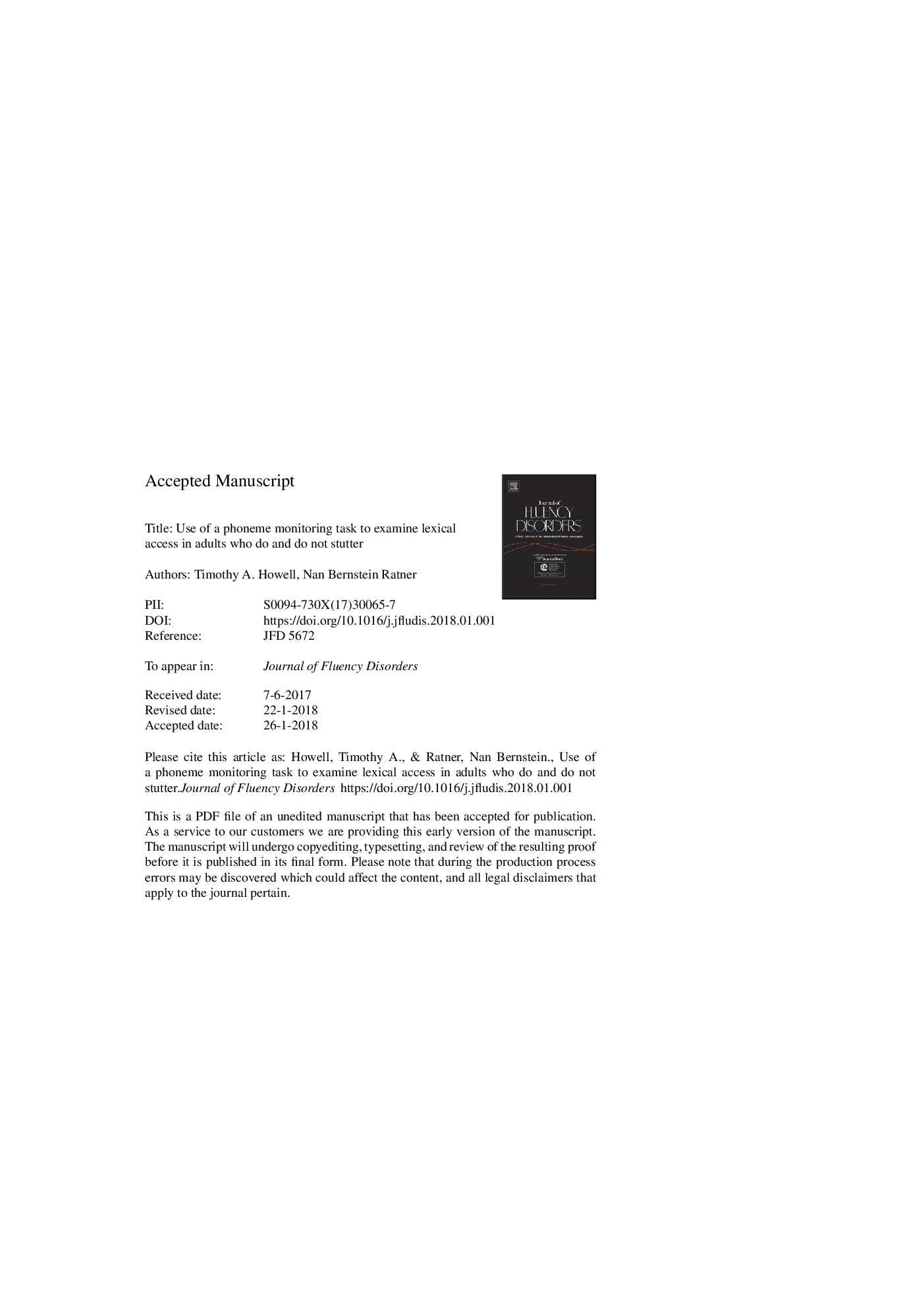| Article ID | Journal | Published Year | Pages | File Type |
|---|---|---|---|---|
| 7268491 | Journal of Fluency Disorders | 2018 | 33 Pages |
Abstract
Previous work has postulated that a deficit in lexicalization may be an underlying cause of a stuttering disorder (Prins, Main, & Wampler, 1997; Wingate, 1988). This study investigates the time course of lexicalization of nouns and verbs in adults who stutter. A generalized phoneme monitoring (PM) paradigm was used. Adults who stutter (AWS) and typically-fluent peers both showed an expected effect of word class (verbs yielded slower and less accurate monitoring than nouns), as well as phoneme position (word medial/final phonemes yielded slower and less accurate monitoring than word initial phonemes). However, AWS had considerably more difficulty when targets to be monitored were embedded in the medial position. A negative correlation between speed and accuracy was found in typically fluent adults, but not in AWS. AWS also scored nonsignificantly more poorly on an experimental language task. Because of the additional difficulty noted in AWS with word-medial targets, our results provide evidence of phonological encoding differences between the two groups. Expanded use of the PM paradigm is recommended for the exploration of additional aspects of language processing in people who stutter.
Related Topics
Life Sciences
Neuroscience
Cognitive Neuroscience
Authors
Timothy A. Howell, Nan Bernstein Ratner,
